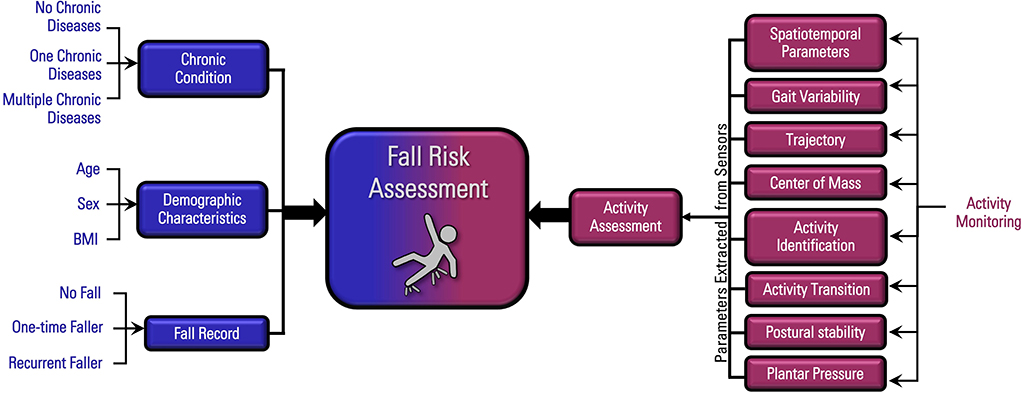Dementia Fall Risk Can Be Fun For Anyone
Dementia Fall Risk Can Be Fun For Anyone
Blog Article
The 9-Second Trick For Dementia Fall Risk
Table of ContentsSome Ideas on Dementia Fall Risk You Should KnowGetting My Dementia Fall Risk To Work4 Simple Techniques For Dementia Fall RiskSome Known Questions About Dementia Fall Risk.About Dementia Fall Risk
Nonetheless, based on symptoms and signs, such as evidence of head injury or a new focal neurologic deficiency, calculated tomography or MRI of the mind may be indicated - Dementia Fall Risk. An assessment for causes of syncope ought to be performed just if there is strong suspicion, as in the case of recurrent, unexplained falls
Health care companies make use of a loss risk assessment to identify your danger elements for falling and make useful suggestions. A loss threat analysis is vital due to the fact that understanding which elements increase your chances of dropping helps you: Minimize your risk of falling or hurting on your own.
Optimize your capacity to move and be active. Keep a healthy and balanced, independent life. All grownups 65 years and older should have a preliminary fall threat screening. Your doctor might ask you whether you: Feel unsteady when standing or strolling. Have dropped in the past year. Bother with falling. If you address yes to any of these questions, your doctor will advise an extra, a lot more extensive assessment.
Getting My Dementia Fall Risk To Work

, and goals especially customized to patients who are at threat for drops. A is defined as an event that results in a person coming to relax accidentally on the ground or floor or other lower level (THAT, 2021).
Dropping is the second leading cause of death from unintentional injuries internationally. It is estimated that fall fatality rates in the United state
The smart Trick of Dementia Fall Risk That Nobody is Talking About
If this rate proceeds, the CDC anticipates 7 fall deaths every hour by 2030.
Yearly, over 800,000 people are hospitalized due review to drops. Nurses play a significant function in protecting against drops for their patients via education, reviewing autumn risk, producing more secure atmospheres, and giving interventions in protecting against injuries from drops. Several risk aspects and problems contribute to drops, including the following:. Aged 65 years and older; reduced limb prosthesis; use assistive devices such as walker, crane, and mobility device; living alone.
Patient will demonstrate selective prevention actions. Person and caregivers will execute methods to raise safety and prevent drops in the home. Autumns are due to several aspects, and a holistic method to the private and atmosphere is very important. Expect an individual is considered at high threat for drops after the testing.
Unknown Facts About Dementia Fall Risk
A requires making use of a validated tool that scientists have actually analyzed to be beneficial in naming the causes of drops in an individual. The degree of loss danger can be determined using the analysis of innate and extrinsic variables.
People are much more likely to fall again if they have actually maintained one or more drops in the previous 6 months. The older population is at boosted threat of fall-related readmissions based on a study determining the factors anticipating of repeat drops linked end results (Prabhakaran et al., 2020).
In addition, complication and damaged judgment why not find out more boost the patient's opportunity of dropping. The capability of people to protect themselves from drops is impacted by such variables as age and development. Older people with weak muscles are much more likely to fall than those that preserve muscle stamina, adaptability, and endurance. These adjustments include reduced visual feature, impaired color perception, modification in facility of gravity, unstable gait, decreased muscle toughness, reduced endurance, altered depth understanding, and postponed reaction and response times.
Dementia Fall Risk - The Facts
Less contrast sensitivity was rather associated with both enhanced prices of falls and various other injuries, while lowered visual skill was only connected with increased autumn rate (Timber see this et al., 2011). Sensory assumption of ecological stimulations is critical to security. Vision and listening to disability restriction the patient's ability to view dangers in the environments.
Older adults that have bad equilibrium or problem strolling are much more likely to fall., or various other medical conditions and therapies., and usage of psychotropic medications (Stanmore et al., 2013).
Report this page